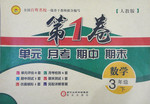

| 完形填空。 | ||||
| Roberta appeared on the stage. She took a deep breath and began to 1 . Now she was Portia, a strong-willed 2 in Shakespeare's The Merchant of Venice. The theater was filled with people. She was speaking with a power she had never before experienced, the words flowing 3 form her 4 , Roberta had never acted in her life before the audition (选拔试演). She 5 being in front of other people. She was very 6 at school. She had never thought she was good enough at anything to 7 much attention. She stayed mostly to herself, making 8 friends. She had excellent grades, 9 she always thought that something was missing. Two weeks before the audition, Robertsa's mother had heard about it and 10 her to join in. "I can't think of anyone else better suited to 11 the part. Remember all the plays you used to act our for us?” Her mother wouldn't let the 12 drop. “You're just a little scared (害怕). Everyone gets scared. You know you 13 do it. The trick is to look past the 14 to find the love of what you're doing.” So Roberta had made an appointment (预约) with the head of the Drama Club. She had read the play and found herself excited by the 15 of speaking such rich words. In secret she practiced Portia's part, 16 the lines by repeating them over and over. It wasn't hard; she 17 every minute of it. Every time she spoke the words, she had a new 18 of the lines, as if Shakespeare had written Portia on many levels. On the day of the audition, she 19 two of Portia's famous speeches for the auditors. When she had finished, the head of the Drama Club announced the 20 was hers. | ||||
|
 第1卷单元月考期中期末系列答案
第1卷单元月考期中期末系列答案科目:高中英语 来源:2004年高考红皮书·英语 题型:054
完形填空
We know the kiss as a form of expressing affection. But long before it became 1 , it was customary in many countries to use it as a( n) 2 of respect. Some native Africans 3 the ground over which a chief has walked. Kissing the hand and foot has been a mark of respect from the 4 times.
The early Romans kissed the mouth or eyes 5 a form of dignified greeting. One Ro man emperor allowed his important nobles to kiss his lips, but the 6 important ones had to kiss his hands, and the 7 important ones were 8 allowed to kiss his feet!
Most likely the kiss as a form of affection can be traced back to primitive times when a mother 9 fondle her child, just as a mother 10 today. It only remained for society to 11 this as a custom for expressing affection between adults.
We have evidence that this was already the 12 by the time of the sixth century, but we can only assume (to think that something is true) it was 13 long before that. The first 14 where the kiss became accepted in courtship (求婚)was in France. The kiss spread rapidly all over Europe. Russia, which loved to 15 the customs of France, soon adopted it. A kiss from the Tsar became 16 of the highest forms of recognition from the 17 .
In time, the kiss became a part of courtship. 18 marriage customs developed, the kiss became a part of the wedding ceremony. Today, we regard it as an expression of love and tenderness. 19 there are still 20 of formal ceremonies and is intended to convey respect.
1.
[ ]
2.
[ ]
3.
[ ]
4.
[ ]
5.
[ ]
6.
[ ]
7.
[ ]
8.
[ ]
9.
[ ]
10.
[ ]
11.
[ ]
12.
[ ]
13.
[ ]
14.
[ ]
15.
[ ]
16.
[ ]
17.
[ ]
18.
[ ]
19.
[ ]
20.
[ ]
查看答案和解析>>
湖北省互联网违法和不良信息举报平台 | 网上有害信息举报专区 | 电信诈骗举报专区 | 涉历史虚无主义有害信息举报专区 | 涉企侵权举报专区
违法和不良信息举报电话:027-86699610 举报邮箱:58377363@163.com